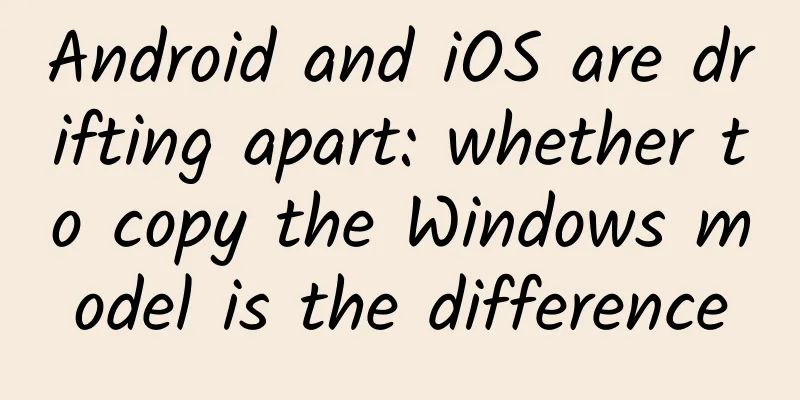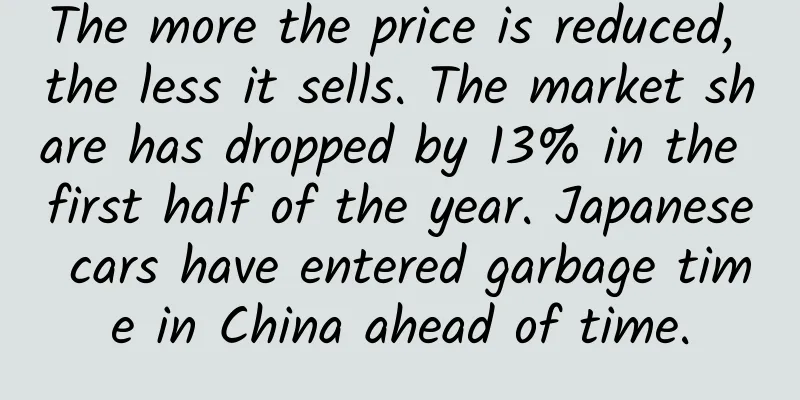Android and iOS are drifting apart: whether to copy the Windows model is the difference

|
iOS and Android have become the duopoly of smartphone operating systems in the world, "monopolizing" nearly 95% of the market share, and Microsoft is basically out of the game. In the eyes of ordinary people, iOS and Android are becoming increasingly similar in terms of system functions and business models. Since last year, Android and iOS have begun to move beyond mobile phones and expand into the fields of smart homes and the Internet of Things. In addition, the new features released at various Apple press conferences have also been ridiculed by Android fans as "features that have existed for several years." On Monday local time, Apple's 2015 Worldwide Developers Conference will be held, where Apple will release a series of new technologies and new business plans. The outside world will also use this conference to further observe the future development direction of Apple and iOS. Appleinsider, a US technology news website, recently published an article saying that iOS and Android are not becoming more and more similar, but are actually going further and further apart in terms of development paths, and the biggest sign is whether they imitate the model of Microsoft's Windows operating system in the 1990s and 2000s. Google's Android is playing the role of Windows back then, and Apple, which has suffered from historical pain, has embarked on a unique "high-gross-profit closed software and hardware" path. The industry has reached a consensus that Google's Android system is becoming Microsoft's "Windows" in the post-PC era. Android's current share in smartphone operating systems is similar to Windows' share in computer operating systems. Microsoft relied on Windows to defeat Apple and become the king of the PC era. If Microsoft relied on its strong software technology to control the PC era, then Google's Android relied on open source, openness and external cooperation to build the "empire" of the Android operating system. Although Android and iOS are nominally in a duopoly position, Android's market share is five times that of iOS, and the number of Android users and devices far exceeds that of Apple devices. Back then, "IBM-PC" kicked Apple's MAC, which had its own closed hardware and software, out of the market. Subsequently, a large number of low-priced IBM-PC clones appeared in the PC market. Cheap hardware, coupled with the monopoly advantage of Microsoft Windows, promoted the arrival of the personal computer era. In the development of the iOS ecosystem, Apple did not repeat the strategy of MAC computers or Microsoft Windows in the 1990s, but instead imitated the business model of the music player iPod and MAC products launched in the 2000s. Apple improves its operating system every year and makes it easier for third-party developers to develop applications for the Apple system. At the same time, Apple launches new iPod players almost every year to encourage users to upgrade, and industrial design becomes the biggest bargaining chip for Apple's new hardware. Just like the iPod, Apple has built the AppStore software store and digital content retail system for iPhone and iPad, which is exactly the same as iTunes. All third-party service providers who want to do business in Apple's "garden" must pay Apple a commission of their revenue. In stark contrast to Apple, Google provides its operating system to Android phone manufacturers for free, focusing on the operating environment of the Android ecosystem like Microsoft. Like the numerous Windows computer manufacturers back then, Google is also encouraging mobile phone manufacturers in various countries to launch Android phones that are becoming increasingly affordable and affordable for low-income people. In the Android ecosystem, Google's openness allows Android phone manufacturers to build their own digital content business models, thereby further reducing the price of Android phones. For example, in China and India, the best-selling Android phones priced between $100 and $200 have greatly improved in performance. In some developing countries, Google has also launched the "Android One" plan, which has promoted the launch of a large number of Android phones priced below US$100 by contracting operating systems and application software. Appleinsider believes that the low-price popularity of Android hardware and the low gross profit trend of manufacturers may be detrimental to the development of the Android ecosystem. In contrast, Apple, which has high gross profit, can use its profits to invest in the research and development of advanced technologies. |
<<: Why did Google and Apple develop their own programming languages?
>>: Developers' Notes: Three OS and Embracing Open Source Swift
Recommend
Watching seals, catching krill, eating sashimi, we live in Antarctica
Excerpted from: "Inside and Outside the Clas...
A small project to make money on Douyin with zero cost, easy to operate and easy to make profits, the full version of the notes is shared with you
With the development of the times, the routines a...
Why did Folding Beijing win the Hugo Award despite the scarcity of technological elements?
Yesterday, there were many topics about women. In...
Severe convective weather is "temperamental", and the "killer weapon" to subdue it: short-term nowcast
□ Science Times reporter Hu Lijuan Recently, Beij...
Amazon's entry into Tmall leaves three major suspense
Amazon quietly entered Tmall, seemingly not wanti...
Starting from the account name, we will teach you how to operate a profitable Xiaohongshu account step by step
: : : : : : : : : : : : : : : : : : : : : : : : : ...
Imitation of WeChat voice sending interface
Source code introduction: imitate WeChat voice se...
XGIMI Z4 Air smart micro-projector review: a great sharing tool you can carry with you
Smart micro projectors, to some extent, are a sub...
How to do Douyin SEO? How does Tik Tok attract traffic?
There are more and more topics about Tik Tok mark...
WeChat Mini Program has been taken offline due to violations of regulations. What should we do if the Mini Program has been taken offline due to violations of regulations?
Before we knew it, WeChat Mini Programs have been ...
3 Tips to Avoid Pitfalls in Kuaishou Paid Promotion and Increasing Followers
Operators will come into contact with paid promot...
3 points of analysis on community operation
Community is a concept that is familiar to all fr...
Get Metaverse Course, Luo Zhenyu's 6 Metaverse Courses Baidu Cloud Download
Facebook's announcement of changing its name ...
Is it possible to know everyone in the world? Is this theory really so amazing?
Audit expert: Chen Mingxin National Level 2 Psych...
The superstition of big data in the post-House of Cards era has been dispelled. The helmsman behind the ratings myth is still the screenwriter
When talking about big data in film and televisio...









